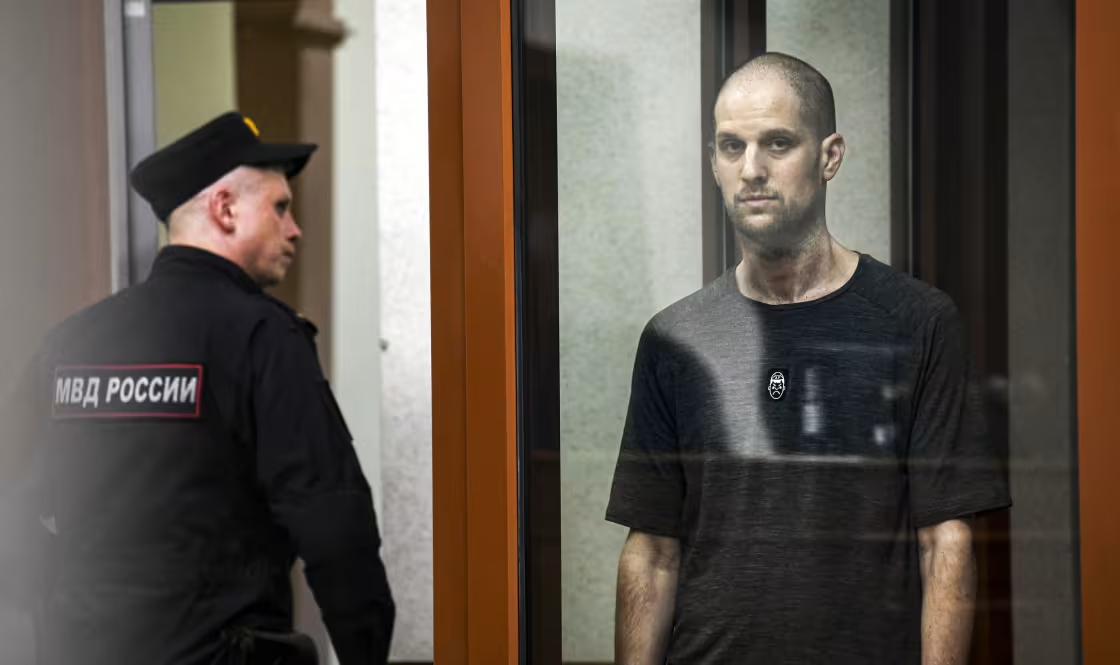By Hope Moses
James Foley Fellow at Marquette University
While journalism is defined as the “activity of gathering, assessing, creating, and presenting news and information,” to me, it is much more.
Journalism is the foundation of our democracy, the spine of our republic. Journalists can be found on the frontlines—protecting and defending the people’s right to know.
Because of this, safety has become a major concern and should be taken more seriously as violence against journalists has steadily increased over time.
One of the reasons journalism is dangerous is a journalist’s duty to report the truth of what’s happening. Attacks against journalists covering stories related to corruption, human rights violations, environmental crimes, trafficking, and political wrongdoing have risen in numerous countries.
According to the United Nations, “journalism is one of the most dangerous professions in the world.” In 2020 alone, at least 30 journalists were killed; 21 of those were singled out for murder in retaliation for their work. Places like Mexico, Afghanistan, and the Philippines had the most retaliatory killings.
Yemeni journalist, Rasha Abdullah Al-Harazi, was killed in a car explosion following threats she received in response to her journalistic work. She was nine months pregnant and traveling with husband, Mahmoud Al-Atmi, who is also a journalist, at the time of her death.
The Yemeni government has yet to address this tragedy and confront the violence journalists are facing, suggesting the lives of journalists do not matter. But I am here to say that Rasha’s life mattered; she and her family deserved better. She was a young woman, not much older than me, and her life was taken from her without acknowledgement of her humanity.
There has been a crackdown on free press in Pakistan—leaving journalists vulnerable to attacks. A line often heard in the country is to “stop covering unwelcome stories or your family won’t find you alive.”
Furthermore, sexual assault amongst women journalists in South Asia has become a concern. According to the Committee to Protect Journalists (CPJ), an organization that promotes press freedom and protects the rights of journalists, Pakistani women journalists are being increasingly targeted online with harassment—including rape threats.
It is unacceptable for women journalists (not only but predominately) to be met with threats of sexual violence. As a woman journalist, it is terrifying that sexual assault can be weaponized and used against me.
Contrary to popular belief, journalists in the US face similar threats; safety is as much a domestic issue as it is an international one.
According to the US Press Tracker, there have been 140 assaults of journalists and more than 50 journalists arrested or detained while on the job in the US in 2021.
KATU news journalists were physically assaulted by individuals demanding that they stopped filming during protests that followed the Kyle Rittenhouse trial verdict on Nov. 19.
In Virgina, a similar situation was reported. Salon reporter, Zachary Petrizzo, was assaulted while documenting the Virginia gubernatorial campaign rally. Petrizzo said, “the whole thing caught me pretty off guard just because I didn’t think he’d lunge and actually strike.”
There are countless examples provided by the US Press Tracker, and the point is clear: journalists are in danger, and the safety of journalists should be a national concern and yet, is not.
Fortunately, there are organizations in the US dedicated to promoting the safety of journalists, including the James W. Foley Legacy Foundation (JWFLF), where I work as a Foley Fellow. JWFLF was founded after the kidnap and murder of American freelance journalist James Foley, who was reporting on the conflict in Syria. The Foley Foundation advocates for American hostages held abroad and promotes the safety of journalists worldwide.
JWFLF has developed journalist safety curricula for both undergraduate and graduate schools to prepare future journalists for their professions. The goal is to integrate these resources into journalism and communications programs across the country, making them available online for educators, students, freelance journalists, and other organizations.
The safety modules are implemented in classes I take at Marquette University and have been an integral part of my journalistic education.
It wasn’t until the safety modules that I realized the dangers that come with journalism. Sitting with that truth has helped me be more vigilant on assignments and expressive of my concerns about said projects.
In the near future, I hope and deeply believe these safety modules will be implemented at universities nationwide.
With increasing threats and knowing crime against journalists have risen, why would I or anyone else pursue journalism as a career?
The answer is simple: journalism matters—today and always.
The violence against journalists proves this. If journalism were insignificant, we would not be having this conversation. But there is power in knowledge; knowledge is invaluable and journalists give the people power, something feared especially by government officials.
I work from a deep belief that every human has an inherent right to the truth and I am willing to be on the frontlines to fulfill this duty.
I am aware that my experience as a black woman and journalist will look different than my peers, but this is a challenge I refuse to back away from because if not me, then who?
If not now, when?
Journalism comes with its dangers, but nothing is more dangerous than living in ignorance.
This does not mean I, or any other journalist, deserve violence. Knowing the risks is not the same as consenting to senseless violence against oneself.
News does not just happen. There are real humans collecting news for the public. Local and national journalists are someone’s children, friend, parent. Their lives matter. My life matters. Journalism matters.



